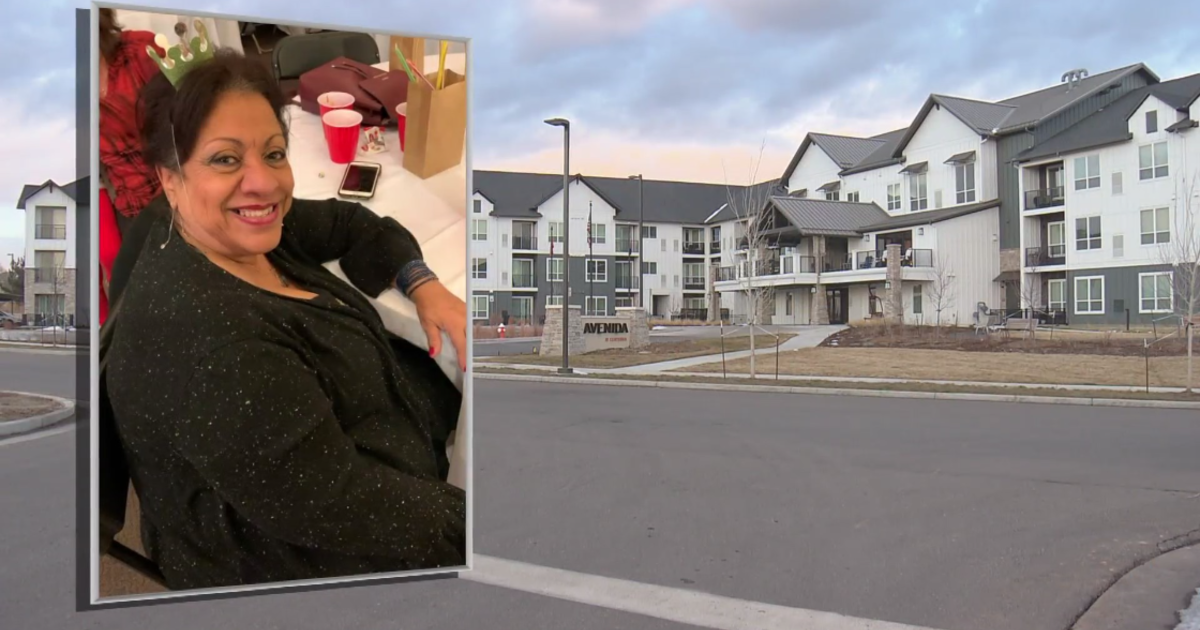A major apartment company in Colorado is charging a Greeley family more than $4,000 in fees after their mother died in her unit, something the family feels is "unethical." This comes in the same month as the company was sued in Denver court for allegedly charging illegal fees to tenants across the state.
In October, Leticia Farrer had just moved in to the Avenida apartment complex in Loveland, managed by a major apartment company called Greystar.
Farrer had dementia, but her family says she was still quite independent.
"She was so fun, very fun, and very family oriented. She loved her kids, loved her grandkids, she was always there for them," recalled Farrer's former daughter-in-law of 25 years, Kelly Gantos. "We thought we would get her into a place that was 55+ community. They had lots of events that were supposed to be able to get the seniors out and, you know, mingle so she could have friends."
But in early January, Farrer passed away unexpectedly. Just a couple days later, Gantos says the apartment complex sent her family a bill for $4,140 in penalty fees, because she says the complex claimed that her death meant that she broke her lease early.
"It's completely unethical," Gantos said. "I mean, everyone says, well, unethical isn't illegal, but taking advantage of people is wrong."
On top of that, Gantos said the company kept Farrer's security deposit.
Gantos says her family does not plan to pay the fees charged against Farrer's estate.
"We were shocked," Gantos said. "It's not right, and we feel that if we stand up, others will be able to follow... So we want to set that example that says we're not going to do it, and neither should anyone else have to."
Colorado law says a lease is nullified after a tenant dies, unless the lease says otherwise, then the lease prevails. In this case, Farrer's lease did stipulate that she would be held to the lease terms even in the event of a death.
"The manager did offer her condolences. Said she was sorry for our loss, but the lease is the lease, so there wasn't really any compassion," Gantos said.
Gantos says her family wants to see Colorado laws changed to make sure no other family has to face similar headaches. They have even already reached out to their local state representative.
Her family's not the only one having trouble with Greystar.
A class action lawsuit filed earlier this month in Denver District Court alleges the company has charged potentially thousands of tenants with "unlawful... junk fees."
Jason Legg with Justice for the People Legal Center is the lead attorney on the case.
"They're junk fees, either for things that aren't legitimate or wouldn't be chosen by a tenant if they had a choice, or for things that, you would expect to be included in kind of the base price you're paying for, and certainly that are not adequately disclosed to Colorado renters," Legg said.
He says Greystar's actions against Gantos' family are "predatory."
"You have what's fair and just and allowed by the law, and then you have another actor, this company using that situation to try to extract more money, and that seems very predatory to me," Legg said.
He encourages anyone experiencing potentially unfair fees to file a complaint with the attorney general's office, and to seek help from legal organizations like his.
"There's power in numbers and organizing your community to talk about common issues like that helps to build power and push back on these issues," Legg said. "I would very much encourage them to talk to their neighbors. They have a right to do that in the state, to organize and to work on building that power, forming tenants unions and associations to help push back on some of these practices themselves."
So far, Greystar has not responded to CBS News Colorado's requests for comment.
In the meantime, Gantos says she's going to continue to take a stand.
"This is not something that we're going to tolerate," said Gantos. "We're going to do something about it."



What could possibly be the point of a law involving leases that a line in a lease can negate?
This law must've been amended, right?